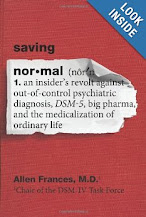Rumor has it, I'm going to start preaching again. My brain functions a lot better than it used to. But it still functions slowly. So to give myself plenty of time, I have been looking ahead to the scriptures that are coming up in the lectionary.
[In the Episcopal Church, among others, we preachers don't pick and choose our favorite bits of the Bible. We get confronted by and have to deal with what is assigned.]
That's how I came across Matthew 9:18-26, one of the texts for early June. Jesus is on his way to heal a young girl when a woman with an issue of blood reaches out surreptitiously to touch him. He feels the power go out of him and turns to confront her. Then he says:
Take heart, daughter; your faith has made you well.
Ah, here it comes -- the faith question of every person with a chronic or fatal illness, every person who prays and has people praying for us.
Don't I have faith? Don't I have enough faith to get my healing?
Many years ago in one of my darkest times, I met a young woman. She was part of a mission group who had come from Mexico to Costa Rica. On behalf of a local church, she and others would be going door to door, sharing their witness.
She asked me what I was doing in Costa Rica. So I told her that I had depression and was writing a book about it.
Without missing a beat, she answered, If you give your life to Jesus, he will heal you, and you won't have depression anymore.
She described her life in her teens, a life of indulgence, as she put it. She was a smoker. But then she gave her life to Jesus and he turned her around. He took away her addiction to cigarettes
Oh, honey.
She and I had met at the church that was sponsoring the mission. The worship service had gone long. I was tired. And I didn't have enough Spanish to get into it with her.
So I didn't tell her that
- I fell in love with Jesus when I was eight and was baptized
- I took Jesus as my Lord and Savior when I was eighteen at college
- I gave my life to Jesus when I entered seminary at twenty-five
- I vowed to . . . pattern my life in accordance with the teachings of Christ, so that I may be a wholesome example to my people when I was ordained a priest at twenty-nine
- I . . . well, you get the idea.
The thing is, I have a brain that works differently, and sometimes not very well. Living a life in Christ has not protected me from the symptoms of bipolar disorder, nor even from feeling suicidal at its worst.
Bipolar disorder has been around for millennia. People had it before the coming of Christ. And people have had it since. Faith in Jesus really has nothing to do with it.
I am glad that Jesus took away her addiction to cigarettes. I am glad that Jesus healed the woman with an issue of blood, that he freed the Gerasene man who had been possessed, that he raised Lazarus from the dead.
But he hasn't healed me. At least, he hasn't taken away my bipolar.
Why not?
No, don't answer that question. I don't want an explanation. I especially don't want God to explain to me how He -- and I use that pronoun on purpose -- how He is using my suffering to some greater end. To help you, I suppose.
I don't want a God who manipulates people who are suffering, moves us around on some chessboard as part of His grand design.
For God's sake, don't tell me to have faith.
What a cruel notion that if you just believe hard enough you will be healed.
The first preaching I will do after an absence of a few years will be for a man who was one of the most faith-filled people I know. He died after waiting for years for a lung transplant, while people around the world prayed for him. As people have prayed for me.
Why am I still sick? I think that's the wrong question to address to God. I think that question posits the existence of the kind of God that we want, a God who will answer our questions and give us certainty and make us feel good.
A God that exists only in our desires and our imaginations.
Whoa! Did the preacher say that God doesn't exist? No, the preacher said that the God that does exist is not small enough to fit inside the box of our desires.
Who is the God who does exist? I am a very smart person. Nevertheless, that question is beyond my bandwidth. I have my own desires about God. But I no longer expect that God will satisfy them.
However, reading all those stories of healings year after year, over forty years of preaching on them, there is something that I have noticed. In almost every one of them, part of the healing is a return to community.
The woman who had had an issue of blood for fifteen years (endometriosis?) would have been unclean on that account. Nobody would have touched her. For fifteen years. Now she could take a neighbor's hand.
The Gerasene man who was possessed (schizophrenia?) lived in chains outside the city of Gerasa. When he was restored to his right mind, Jesus sent him home.
Lazarus -- dead and in the tomb. Jesus returned him to his sisters.
And me with my bipolar -- that is the kind of healing I have experienced. When I was newly disabled and not leaving my second floor condo except to go to the doctor, I joined NAMI -- National Alliance on Mental Illness. I went a Peer to Peer class, where people with mental illness teach other people with mental illness how to navigate our lives.
I discovered people who didn't care whether I had faith or not. They didn't need for me to be healed to confirm their own faith. They expected I wouldn't be. And they loved me. They invited me in. They were my new community.
Romans 8 -- that's what I believe. When I don't believe in God -- I really don't believe in the God who withholds healing based on my puny wounded capacity for faith -- I do believe this:
I am sure that neither death, nor life, [nor feeling suicidal], nor angels, nor principalities, [nor health insurance companies], nor height, nor depth, [nor the personal hell of side effects], nor anything else in all creation will be able to separate us from the love of God in Christ Jesus our Lord.
I am not healed. But I am loved.
That's a kind of healing. And it is enough.
photo by Nevit Dilman, used under the creative commons license.















